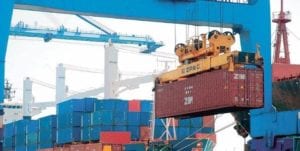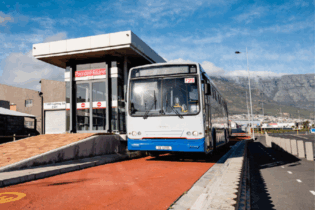Transnet National Ports Authority (TNPA) says it has devised a new pricing strategy based on the user-pay principle, and has asked the National Ports Regulator for tariff increases equivalent to inflation plus 3% for the three years from 2014-15.
The plan was set out by chief financial officer Mohammed Abdul in Parliament on Friday. It will add to growing concern over high administered prices imposed by government, municipalities and state-owned enterprises such as Eskom, and their crippling effects on business. The National Energy Regulator of South Africa is considering an application by Eskom for an increase of 16% a year over the next three years. The TNPA has discussed its new pricing strategy with the regulator, stakeholders and government departments and would be taking it to the Transnet board for approval shortly, CEO Tau Morwe told Parliament’s trade and industry committee. If adopted, the new pricing system would see terminal operators and other port tenants paying rentals nearly double what they do at the moment, while cargo dues would be cut significantly. Export tariffs would be lower than import tariffs, shipping lines would pay slightly higher tariffs and container dues for imports and exports would be reduced. The proposed pricing strategy would completely restructure the tariff book to favour beneficiation and job creation, in line with the government’s industrial policy objectives. Preferential cargo dues would be applied to beneficiated products, with dues on bulk and break-bulk commodities, including coal and iron ore and other unbeneficiated cargo, increasing. The TNPA also wants the regulator to agree to a multiyear tariff determination to provide certainty, though the National Ports Act only allows for annual tariff determinations. The TNPA has already applied to the regulator for an average 5.4% tariff adjustment for the year from April 1 2013. However, this assumes it also gets a multiyear determination for the other years. If not, the application is for an increase of about 14% next year — a hike the industry has decried as being far too high and likely to erode South Africa’s export competitiveness.Mr Abdul said the application included some of the principles of the new pricing strategy. Proposed tariffs on full exported containers of 6m would fall 43% from the tariff book figure of R1,082 to R614 and from R2,163 to R1,228 for 12m containers. Tariffs for imported containers would drop 14% from R2,178 to R1,866 and R4,355 to R3,731 respectively. Mr Abdul said if the company could get inflation plus 3% capped for the three years from 2014-15 it should be able to sustain the business and deliver on its R46.9bn capital expenditure programme.
A multiyear determination would bring revenue certainty, increase investor confidence and provide a better planning environment for stakeholders, he said. The new pricing strategy would be based on the user pays principle, rather than the ad valorem system, which Mr Abdul believed was “not defensible”. Mr Morwe said the ad valorem system was not transparent on operating costs and revenue, and provided no explanation for the differentiation in tariffs. In this system, the more expensive the cargo, the higher the tariff. In the strategy, the source of the TNPA’s revenue would be assigned to its various asset classes with far more being paid by its port tenants than at present and cargo owners being the main beneficiaries. Under the proposals, maritime services would generate 21% (20% currently) of revenue, cargo dues 46% (61%) and terminal operators 33% (19%). Justifying the application, Mr Abdul said the TNPA’s tariff determinations for the past three years had all been well below the inflation rate in those years. However, these were “not sustainable” going forward in light of the TNPA’s investment drive, he said. Source: http://www.bdlive.co.za






